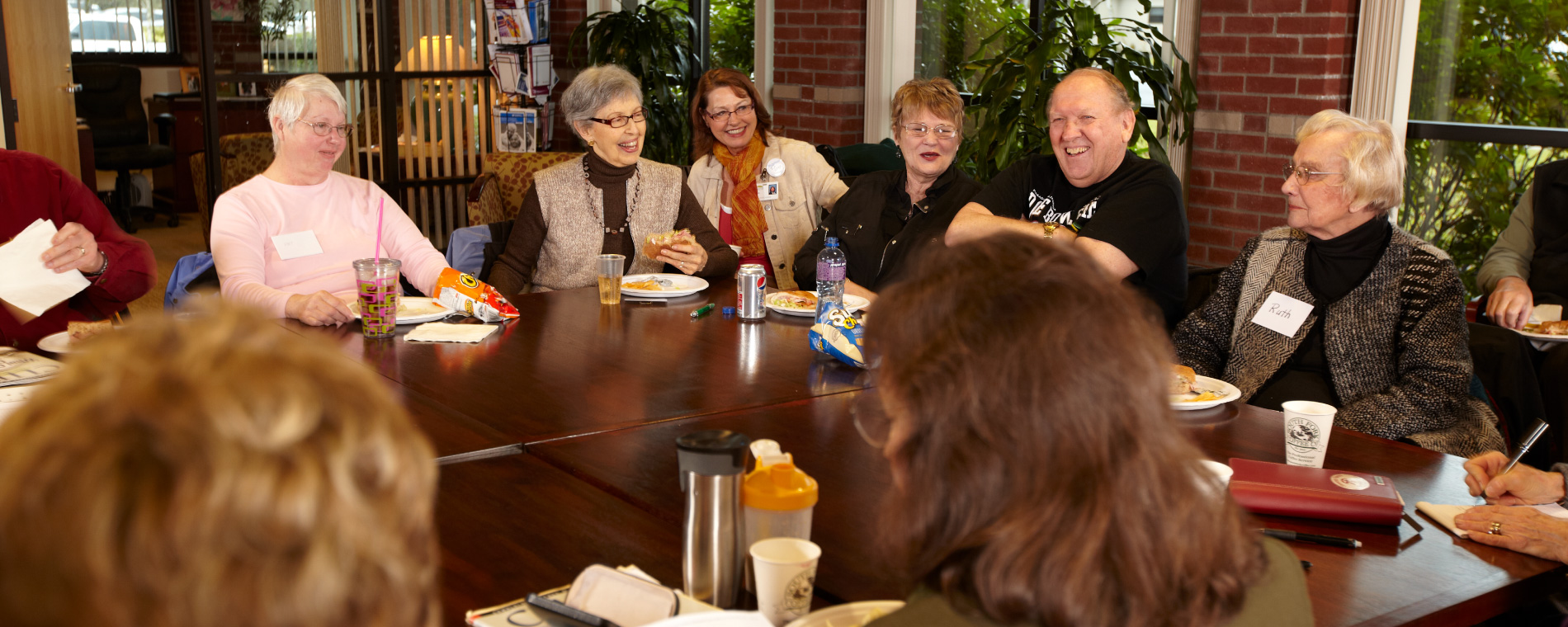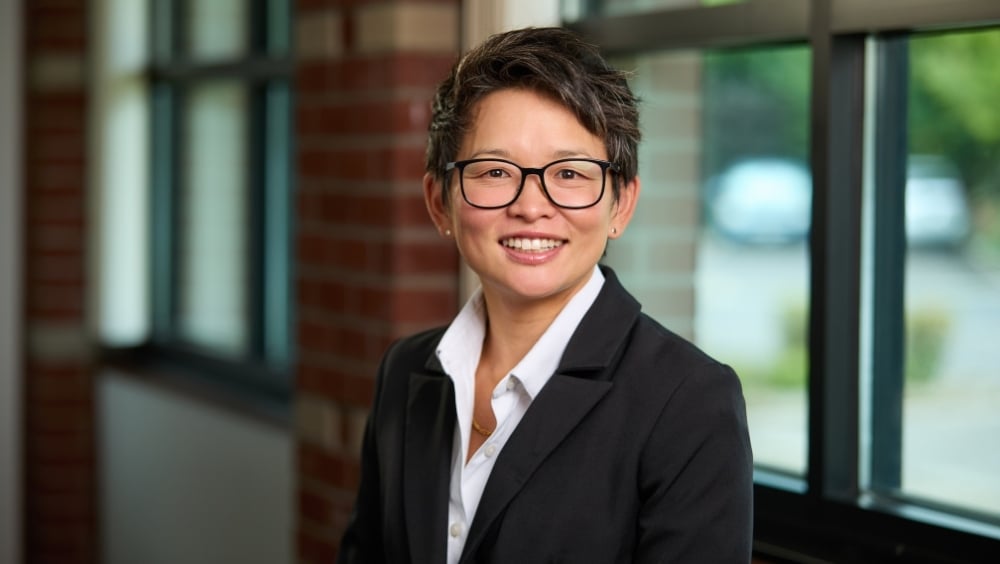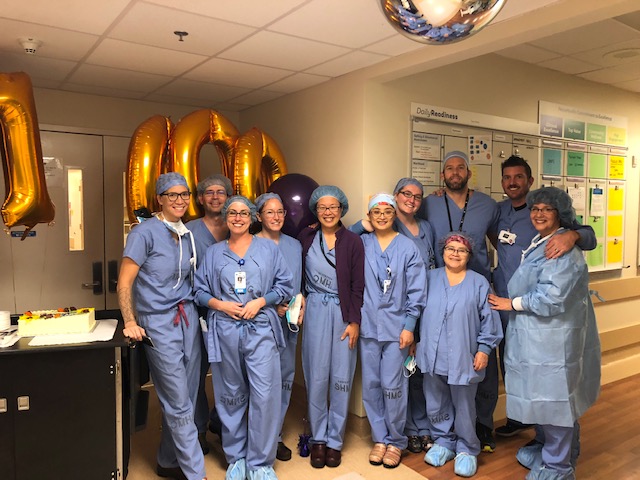When Lynne Phillips was diagnosed with multiple myeloma more than a decade ago, she felt overwhelmed and scared.
“When you’re diagnosed with something you’ve never heard of and you’re told that it’s incurable—that it’s cancer—it’s very hard to deal with that on your own,” Lynne says.
At the time, there was no support group locally for people with multiple myeloma. Lynne connected with the Leukemia and Lymphoma Society and was instrumental in getting a group started at Willamette Valley Cancer Institute. On the third Wednesday of the month, Lynne and others gather to discuss their cancer in a respectful and confidential setting, surrounded by those who share many of their concerns, hopes and fears.
“There’s a lot of sharing, a lot of support, a lot of comradery and a lot of laughter,” says Lynda Godell, WVCI’s oncology social worker. Godell facilitates the group, along with Oncology Care Manager Gretchen Matsuoka.
Benefits of support groups
Unlike online or telephone support groups, in-person groups help patients and caregivers develop personal connections.
“Oftentimes, families are very supportive and patients lean on their friends and families, but it’s nice to go someplace where another person has what you have and can relate on a very personal level,” Godell says.
Topics are usually decided by the group, so that the discussion is relevant and useful. Topics include:
• Living with a cancer diagnosis
• How cancer effects family and friends
• Managing side effects
• Dealing with the emotional side of cancer
• Working during and after treatment
• New treatments
A typical support group session lasts one to two hours and includes about ten people, but can vary in size.
Making connections
Support groups can be beneficial not only to patients, but also to caregivers. Interacting with a group adds perspective and helps relieve feelings of isolation.
Kathy Glazier was diagnosed with multiple myeloma in 2005 and was one of the first attendees of the multiple myeloma support group. She continues to come each month for the comradery and information, but she also wants those who are new to the group to know they are not alone.
“It’s been 10 years and I’m able to say, ‘Look, I’m still here. I know you were just diagnosed, and it’s really scary, but we’re here for you,'” Kathy says.
“We come because we get feedback and information and friendship with other people who really understand. And we also come to give that back,” Lynne says.
When trying a support group for the first time, Godell suggests you attend at least three sessions. At that point, you’ll know if the group is right for you.
All WVCI support groups are drop-in; anyone can come at any time. There are also several support groups offered throughout the community. Find a list here.



